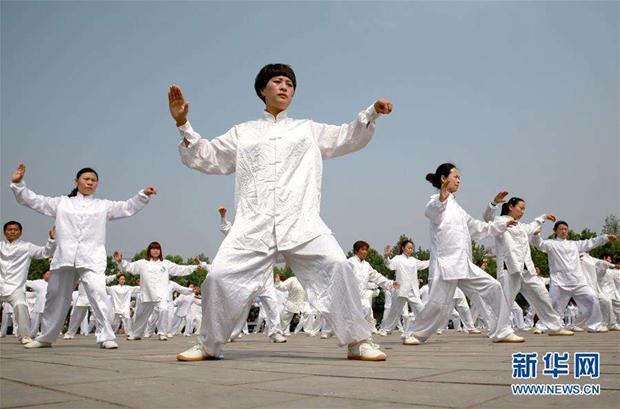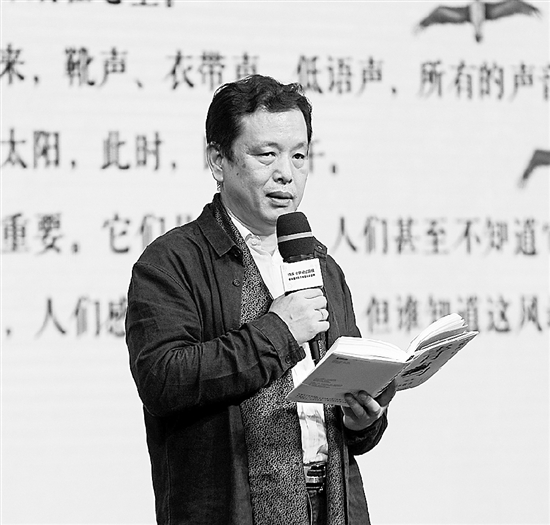
Celebrating World Tai Chi Day

Tai chi [Photo/Xinhua]
One of my fondest memories of China is seeing large groups of people early in the morning going through their graceful tai chi positions. I have only recently discovered, however, the wide popularity of tai chi, as evidenced by the upcoming celebration of World Tai Chi Day this last Saturday of April. The annual event, according to its official website, will take place in many hundreds of cities across 80 countries and six continents, including the ancestral home of tai chi – China.
While nearly everyone has heard of tai chi, non-adherents may not know much about it in detail. There are many forms of tai chi and different schools of practice. Tai chi is often thought of as a form of martial arts, one that avoids the injuries and violent contact associated with others.
But to serious devotees, tai chi is far more than that.
Many argue – with support from some scientific findings – that tai chi has considerable health benefits. As stated by Harvard Women's Health Watch in May of 2009:
"Tai chi is often described as 'meditation in motion,' but it might well be called 'medication in motion.' There is growing evidence that this mind-body practice ... has value in treating or preventing many health problems."
It is thus no surprise that the motto adopted for World Tai Chi day is "one world, one breath." Some see tai chi as particularly helpful for the elderly, especially the way in which it incorporates meditation and focuses on the body's core. Tai chi is also about renewal and coping with stress – important factors in leading a happy and successful life.
Tai chi can be considered a philosophy and even a spiritual practice. There is considerable talk today about work-life balance, and tai chi provides for many a way to achieve such a balance in their mental, physical and spiritual realities, represented by the Chinese concepts of yin and yang.
Ken Cohen, who teaches and writes about tai chi as well as the closely related practice of qi gong, has said: "Stillness and action are relative, not absolute, principles. It is important to find a balance of yin and yang, not just in qi gong, but in everyday life. In movement, seek stillness and rest. In rest, be mindful and attentive."
Tai chi is a way to demonstrate how we should adapt to changes that come to us through outside forces. Being able to adjust to change with discipline, calm, grace, artfulness and good form is an important quality that should be valued in any society. Garri Garripoli, writing about qi gong specifically but with resonance for tai chi in general, said that it "is more than a set of exercises, it is an attitude that works to restructure one's perspective on life, leading to balance and harmony with the world around us."
下一篇:返回列表
相关阅读



























